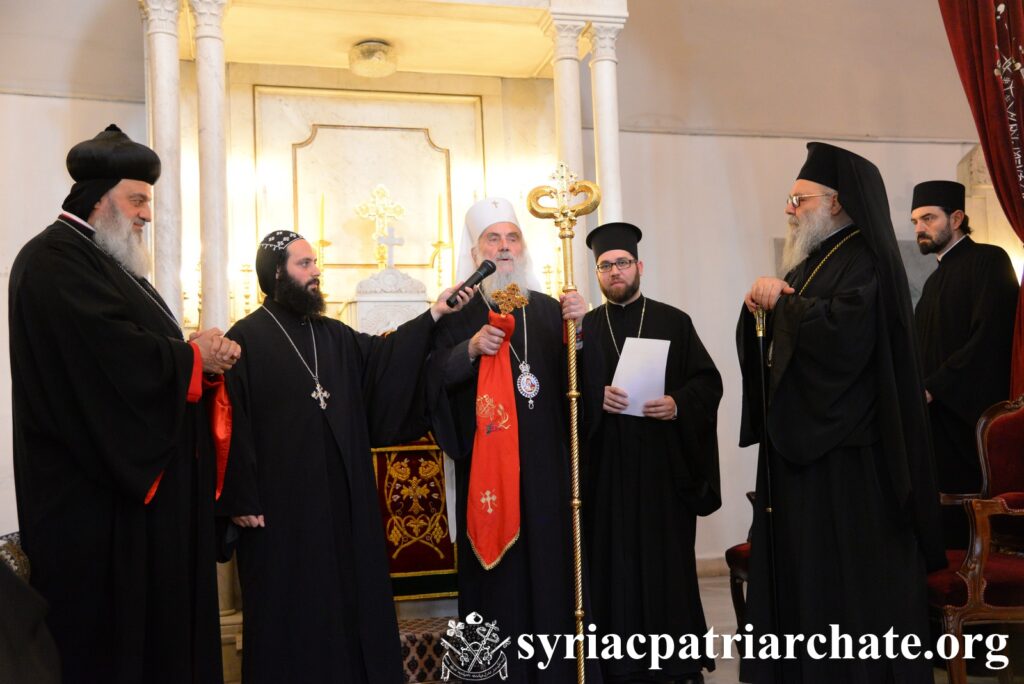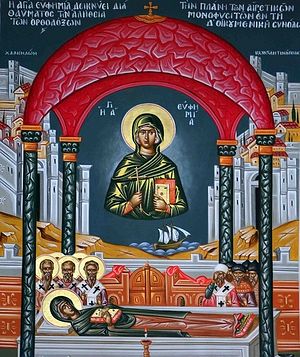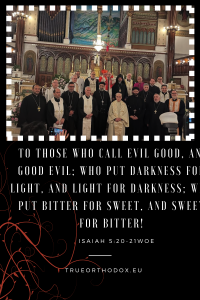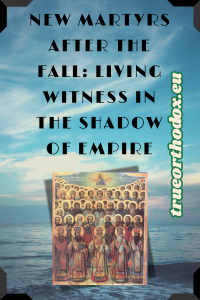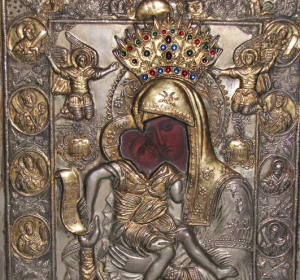Heretical Agreements Between “The Eastern ‘Orthodox’ Patriarchate of Antioch” and “The (Monophysite) Oriental ‘Orthodox’ Patriarchate of Antioch”
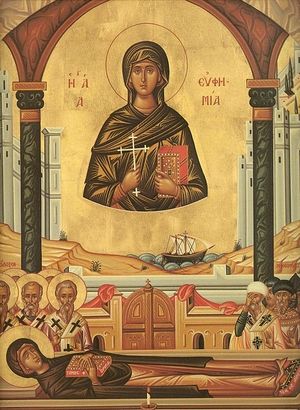
At the 4th Ecumenical Council, the Tome of the Orthodox and the Tome of the Monophysites are placed on the relic of St. Euphemia. The reliquary is sealed. In the morning, St. Euphemia has the Tome of the Orthodox in Her embrace and the Tome of the Monophysites at Her feet.
“Both Churches shall refrain from accepting any faithful from one Church into the membership of the other, irrespective of all motivations or reasons.” Statement of the Orthodox Church of Antioch on the Relations between the Eastern and Syrian Orthodox Churches November 12, 1991. “In localities where there is only one priest, from either Church, he will celebrate services for the faithful of both Churches, including the Divine Liturgy, pastoral duties, and holy matrimony. He will keep an independent record for each Church and transmit that of the sister Church to its authorities.” “If two priests of the two Churches happen to be in a locality where there is only one Church, they take turns in making use of its facilities.” “If a bishop from one Church and a priest from the sister Church happen to concelebrate a service, the first will preside even when it is the priest’s parish.”
“We recognize in each other the one Orthodox faith of the Church.” (First Unofficial Consultation
Orthodox-Oriental Orthodox Theologians Agreed Statement Aarhus, Denmark August 11-15,1964) “On the essence of the Christological dogma we found ourselves in full agreement. Through the different terminologies used by each side, we saw the same truth expressed” (Aarhus 1964)
“On the essence of the Christological dogma our two traditions, despite fifteen centuries of separation, still find themselves in full and deep agreement with the universal tradition of the one undivided Church.” Geneva 1970. “But the restoration of Communion obviously implies, among other things, that formal anathemas and condemnation of revered teachers of the other side should be discontinued as in the case of Leo, Dioscurus, Severus, and others.” Geneva 1970 “Many of us felt that it is much simpler gradually to drop these anathemas in a quiet way, as some churches have already begun to do.”(Addis Ababa 1971) “We have now clearly understood that both families have always loyally maintained the same authentic Orthodox Christological faith, and the unbroken continuity of the apostolic tradition, though they have used Christological terms in different ways.” (Geneva 1990)
“Both families agree that all the anathemas and condemnations of the past which now divide us should be lifted by the Churches” (Geneva 1990) “Both families agree that the lifting of anathemas and condemnations will be consummated on the basis that the Councils and Fathers previously anathematized or condemned are not heretical.” (Geneva 1990)
“In localities where Churches of the two families co-exist, the congregations should organise participation of one group of people – men, women, youth and children, including priests, where possible from one congregation of one family to a congregation of the other to attend in the latter’s eucharistic worship on Sundays and feast days.” (Geneva 1990) “Churches of both families should agree that they will not rebaptize members of each other” (Geneva 1990) “Churches should initiate bilateral negotiations for facilitating each other in using each other’s church premises in special cases where any of them is deprived of such means.”
